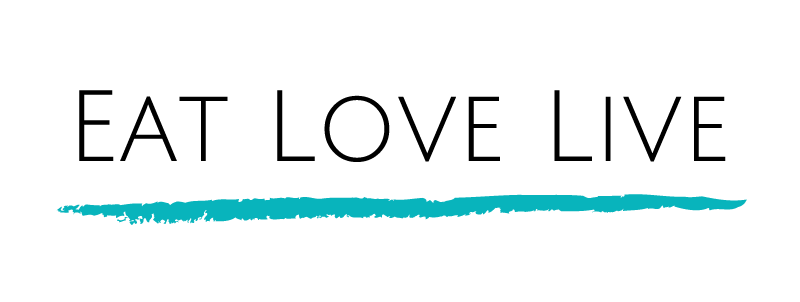GLP-1 agonists & Eating Disorders: What to Say When Clients Ask
Online Short Course
As the use of GLP-1 agonists medications (e.g., Ozempic, Wegovy) rises, so do concerns about their prescription to individuals with active, historical, or at-risk of eating disorders. This webinar supports ED practitioners in navigating complex, relational conversations with clients exploring or already using these medications.
This is not a short course on pharmacology or pathophysiology of GLP-1 agonists. Rather, it focuses on relational, ethical, and consent-based approaches to client care.
Attende Feedback:
" The GLP-1 agonist webinar was excellent. It provided another practical and safe way to approach these conversations with clients who are considering them or have already started. I’ve used the Diet/ED cycle and the Spectrum of Eating worksheet with several clients over the last few weeks, and it’s landed so well. It’s been a safe and gentle way to introduce disordered eating and eating disorders and has helped the conversation to unfold naturally and allowed for the next steps to be much more relaxed."
Are your clients asking about Ozempic, Wegovy, or other GLP-1 medications?
With the rise in popularity of GLP-1 agonists for weight loss, eating disorder practitioners are facing a growing challenge: how to ethically and effectively support clients navigating these medications; including recommendations to take these medications —especially those with active EDs, a history of EDs, or those at risk.
This 2-hour webinar is designed to equip you with the relational tools and clinical frameworks to hold these complex, sensitive conversations—without shame, without directive advice, and always with your client’s autonomy and safety at the center.
A Short course for Eating Disorder Practitioners
One Time Payment
Purchase Now
What's Included:
2 Hour Lecture
PDF Slides
PDF DECISIONS Framework
Practical tools to use in session:
- GLP-1, Eating Disorders and Me - Decision making worksheet (PDF and Word)
- Example GLP-1, ED and Me worksheet
- Risk Management plan worksheet (PDF and Word)
- GLP1 Agonist Informed Consent Resource - Medical Students for size inclusivity
- PDF- ED formulation + Anti fat bias and a blank version to use in session
- PDF -ED- cycle + Anti fat bias and a blank version to use in session
- What is normal eating worksheet
- Radical Client Centered Framework PDF and Worksheet PDF
- Where to find more information books/ podcast /social media PDF
Purchase Now
This Short Course is for you if you:
-
Work with clients who have EDs, disordered eating, or weight/shape concerns
-
Feel unsure how to respond when clients mention GLP-1s
-
Are seeing these medications increasingly recommended to your clients
-
Want to support truly informed, values-based client decision-making
-
Need practical, real-world tools for conversations around risk, ethics, and autonomy
What You'll Learn
-
Why GLP-1 agonists present unique risks for people with eating disorders
-
How to talk about GLP-1 agonists
-
How to center consent and autonomy while educating compassionately
-
When (and how) these medications may be appropriate and how to support the nuance of this (How to we support clients with co morbid diabetes or PCOS who may benefit from GLP1 use a lower doses?)
-
How to respond to recommendations from other health professionals; including when you don't agree with them
Important Note:
This content will not cover the pharmacology or pathophysiology of GLP-1 agonists in detail. Instead, it focuses on relational, ethical, and client-centered responses in ED contexts.
Details at a Glance
-
On line Short Course on Teachable
-
Cost: $99 AUD
-
Target Audience: All eating disorder practitioners (dietitians, psychologists, therapists, GPs, etc.)
Included With Your registration:
-
2 Hour Lecture
-
Downloadable RCC worksheet + decision-making tools to use in session with clients
-
Multiple client resources for use in session
-
Risk management planning template for use with clients
-
Template letter to adapt for your own use to use when communicating with refers
Purchase Now
ELL Educations other current Resources:
| | |  |
Radical Client CentredFrameworkDeveloped from lived experience consultation this reflective tool provides a framework to consider in session with the client or in supervision, the impact of the client's experiences in each domain and what may need to be considered, validated, explored and navigated to support understanding and support. Radical Client Centred Framework
| "I've done the basic training: now what?Intermediate skills in supporting individuals with eating disorders. | Digital Client Resource packageFor dietitians and Allied Health Professionals supporting individuals with disordered eating and eating disorders |
| |  | |
"So what if you're fat? You still deserve good healthcare!"A panel of weight-neutral experts to empower you with the skills needed to navigate healthcare settings effectively in the face of anti-fat bias. Hosted by Eat Love Live in honour of Weight Stigma Awareness Week, 2024. | Understanding supervision - the key to improving your practiceSupervision is recognised by many dietitians & health practitioners as one of the most important factors in reducing burnout & improving quality of care provided to clients. But what exactly is supervision? Who is it suitable for? And what can you expect ? | The impact of social media on body imageDive into exploring how social media influences youth perceptions of beauty, emphasises a focus on aesthetics and learn effective strategies to promote body positivity and mental well-being in the digital age. The webinar provides helpful insight into the complicated landscape of social media and how this impacts body image, especially for young people. FREE recording on how to support young people in a digital landscape |
|
|
|
View All Products





